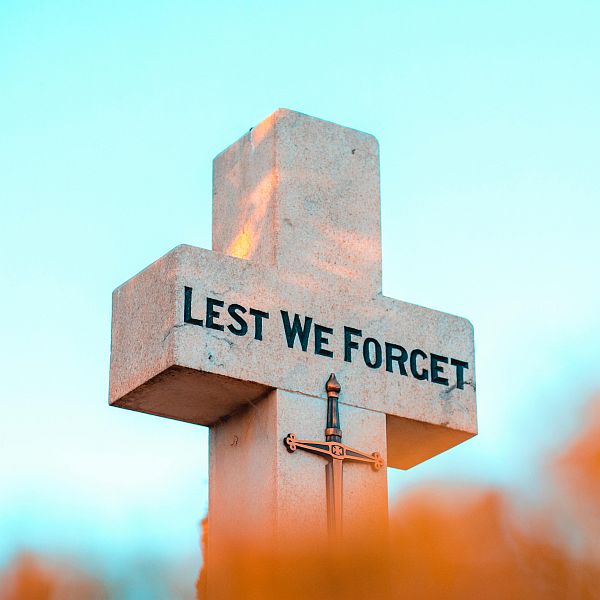Memorials offer a meaningful way to remember those we’ve lost, helping us find comfort and a sense of closure during difficult times. Whether it’s a gravestone, a quiet ritual, or a cherished spot, memorials anchor our memories and emotions, giving us a way to honor loved ones, keep their memory alive, and, eventually, make peace with their passing. This article explores why memorials are important, how they help us grieve, and the ways they support people and communities in the healing process.
Why We Seek Closure in Grief
Grieving is a personal and often challenging journey, filled with waves of sadness, anger, confusion, and sometimes relief. Finding closure doesn’t mean “moving on,” but rather reaching a point where we can carry our loss gently as part of our life. For many, memorializing a loved one is an essential part of this journey, offering a comforting space to honor their memory and support our own path to acceptance.
Memorials as a Source of Closure
Creating or visiting a memorial gives us a space to remember, reflect, and find some stillness amidst grief. Whether it’s a familiar place or a cherished ritual, these moments help us feel connected to our loved ones. Memorials can give us a solid way to process loss, express our feelings, and start adjusting to life without them.
The Healing Power of Memorials
Memorials are often powerful tools for healing. Psychologists stress that expressing grief is essential to the healing process, and memorials make this expression easier by offering a safe and comforting place for emotions. Here’s how they aid in the journey of grief:
- Affirming Our Feelings
Memorials give us a way to publicly recognize the importance of a person’s life, reminding us that it’s natural to feel pain in their absence. This validation can bring comfort, especially in a world that sometimes pressures us to “move on” before we’re ready. - Allowing Emotions to Flow
Grief often needs an outlet, and memorials provide a safe space for this. Whether through quiet reflection, placing flowers, or writing a message, memorials let us express our feelings when we may struggle to do so elsewhere. - Finding Connection with Others
Memorials are places of connection. They remind us that we’re not alone in our loss and give us opportunities to share memories with others who knew the person. Being with others who understand can ease feelings of isolation and offer comfort in shared remembrance.
Different Types of Memorials and Their Meaning
 Memorials come in various forms, from traditional grave markers to digital tributes, each offering its own way to honor and remember those we’ve lost.
Memorials come in various forms, from traditional grave markers to digital tributes, each offering its own way to honor and remember those we’ve lost.
Physical Memorials
– Grave Markers and Headstones: These traditional memorials provide a specific place where we can go to remember and honor our loved one.
– Monuments and Statues: Larger commemorations, often honoring groups or significant events, can bring communities together in shared remembrance.
– Memorial Gardens and Benches: These memorials, placed in natural settings, offer a peaceful space to reflect and remember in a comforting environment.
Symbolic Memorials
– Memory Walls or Trees: These are spaces where people can leave messages, photos, or items in memory of someone, creating a collective tribute over time.
– Personal Altars or Shrines: Often set up at home, these spaces hold photos, candles, and other mementos, offering a daily reminder of a loved one’s presence.
– Virtual Memorials: Digital memorials allow us to connect with others online, sharing memories, photos, and messages, regardless of physical distance.
Memorial Events and Rituals
– Annual Remembrance Events: Many cultures have yearly ceremonies, like Día de los Muertos in Mexico or Memorial Day in the U.S., providing space for remembrance and reflection each year.
– Personal Rituals: Lighting candles, visiting special places, or marking dates with a small ritual helps us honor loved ones and maintain a sense of connection over time.
Each memorial type has its unique purpose, and many find peace by choosing one that resonates most with their loved one’s memory and their own way of grieving.
The Cultural Significance of Memorials
Every culture has its own ways of honoring those who have passed, highlighting how universal remembrance is, even if each tradition looks different.
– Japanese Obon Festival: Families gather during Obon to honor their ancestors through offerings, music, and dance, blending memory with celebration.
– Jewish Yahrzeit Candle Lighting: On the anniversary of a loved one’s passing, a special candle is lit, creating a gentle and meaningful reminder each year.
– Vietnamese Ancestral Altars: Many Vietnamese families maintain home altars with photos and offerings, creating a daily, lasting reminder of family heritage.
These cultural practices remind us that, no matter our background, remembering those we love is a shared experience across humanity.
Memorials as a Lasting Legacy
Memorials also allow us to keep a loved one’s legacy alive, carrying their values, contributions, and positive impact into the future.
- Living Memorials
Establishing scholarships, foundations, or community projects in someone’s name creates a lasting impact, keeping their values alive in a way that also benefits others. - Environmental Memorials
With eco-friendly memorial options like planting trees, we can remember a loved one in a way that contributes to the world. Such living memorials can be both comforting and rewarding as they grow and give back to the earth. - Digital Memorials and Social Media
As digital spaces are becoming integral to our lives, many platforms offer ways to preserve a person’s social media presence, allowing family and friends to share memories and honor their legacy online.
Challenges and Considerations with Memorials
While memorials are helpful in grief, they can also bring challenges, such as upkeep, cultural sensitivities, and the balance between remembrance and moving forward.
– Maintenance and Longevity: Physical memorials require care over time, which can become costly or challenging. Finding ways to keep memorials maintained is important to ensure their lasting presence.
– Respect for Cultural Differences: Grieving is deeply personal, and what feels right for one person may not resonate with another. Being sensitive to these differences makes memorials a more inclusive source of comfort.
– Balancing Remembrance and Healing: Memorials are valuable for remembrance, but they’re also part of moving forward. Finding a balance allows space for both healing and honoring the past.
In Closing
Memorials hold a special place in the grieving journey, giving us space to remember, find peace, and honor those who have left us. Whether through personal rituals, community spaces, or digital tributes, these acts help us carry forward love and memory. Ultimately, memorials remind us that grief is an expression of love, and they give us comfort and hope on the road to healing.
